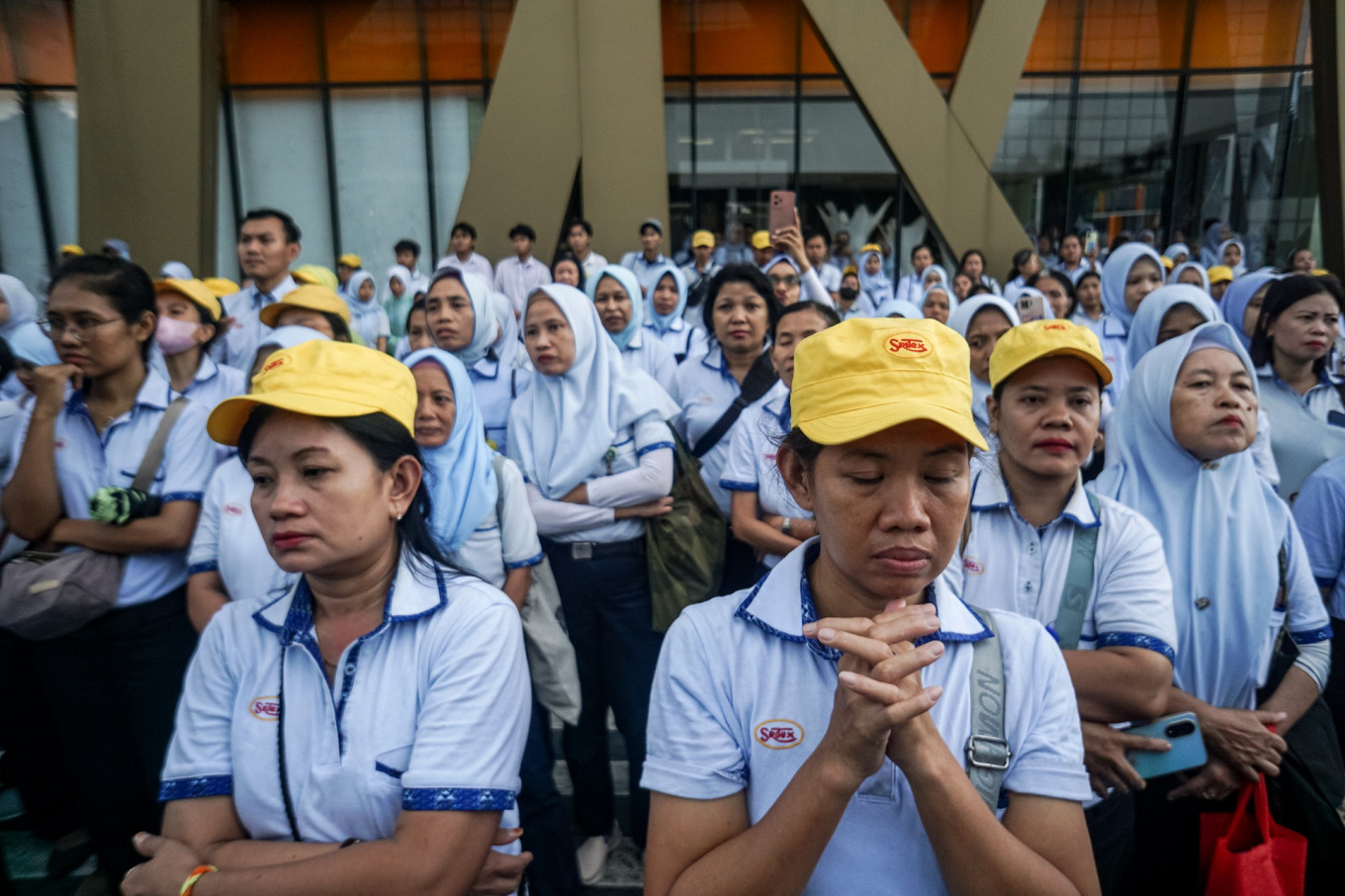Popular Reads
Top Results
Can't find what you're looking for?
View all search resultsPopular Reads
Top Results
Can't find what you're looking for?
View all search resultsCheap labor won’t cut it
Given all the other shortfalls in our manufacturing industries, wages play a relatively small role, while electricity costs and the availability of renewable energy are increasingly important.
Change text size
Gift Premium Articles
to Anyone
I
ndonesia is rightfully concerned about the domestic textile industry. The bankruptcy of Central Java-based garment maker PT Sri Rejeki Isman, better known as Sritex, is a particularly large case in point for a much wider problem.
The fate of more than 10,000 laid-off workers at Sritex and connected companies has been all over the news, and while the government and insurers should do what they can to alleviate the pressure for the affected individuals, this must not distract us from the bigger picture.
Manpower Minister Yassierli has promised to help the affected workers process their claims for old age and unemployment benefits and got the administrators to commit to paying Idul Fitri holiday allowances (THR) almost half a year after the bankruptcy declaration.
The government is clearly aware of the optics of thousands losing their livelihoods just as employees across the country look forward to their bonuses, but is it equally aware of the underlying problems in the textile industry?
In Tangerang, two footwear manufacturers for Nike, Adidas and a range of other global brands are in the process of laying off thousands of workers in response to dwindling orders. There are dozens of cases of factories shutting down or scaling back.
Our government and producers like to point fingers at “cheap imports” supposedly making our companies uncompetitive, but it is the other way around: A lack of domestic competitiveness is creating an opening for such imports.
There is no denying that many Indonesian textile firms are relatively inefficient after having invested too little in new technology over the past years.
The issue runs deeper than that, however, extending to what is mostly an unhealthy industrial ecosystem, and that includes infrastructure and logistics, regulations, bureaucracy and global economic developments.
That last aspect is out of our control, but all the others can be worked on.
Also, it is not just textile companies that are struggling, but many other manufacturers as well. According to recent reports, Yamaha is looking to shut factories producing musical instruments in Indonesia because of weak market demand.
Some economists say relatively high wage levels make our factories less competitive than those in Bangladesh, but given increased automation, labor accounts for a diminishing share of total unit costs in garments and footwear.
Given all the other shortfalls in our manufacturing industries, wages play a relatively small role, while electricity costs and the availability of renewable energy play a growing role.
Trying to compete on labor costs could prove futile, especially at a time when export orders are under threat from weak demand in traditional target markets like Europe and the United States, exacerbated by protectionist trade policies.
Moreover, stagnating wages would only hurt domestic demand for the very products that may become increasingly hard to sell abroad.
There is a good point to be made against excessive wage growth, notably to prevent firms from outsourcing activities to the informal economy, but a race to the bottom on wages would be a lose-lose and get us no closer to our goal of a high-income economy.
Instead, manufacturers need to be encouraged to adopt automation by replacing outdated equipment and streamlining operational procedures. Without a doubt, thousands of jobs would be lost in the process of overhauling textile businesses, but it is either that or losing the entire industry.
The government should focus on the infrastructure and let the businesses do their business, without any hurdles in their path to modernization.
This means ensuring supportive policies for imports of machinery and materials and refraining from interference in who or how many people will be employed.
Companies from within and outside the country have reportedly expressed interest in acquiring some Sritex assets and rehiring at least some of the workforce. We will not convince them with a cheap labor pitch because they will be looking for lean operations.
Let us welcome them.











